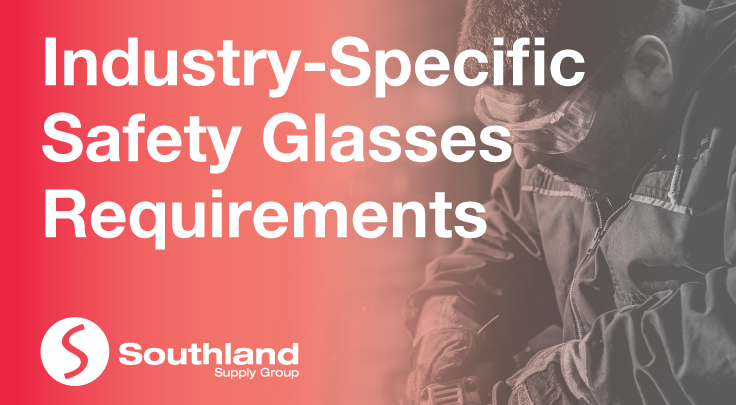
Ensuring workplace safety is a top priority across industries in Australia, and safety glasses play a significant role in safeguarding employees' vision. In this blog, we will delve into the industry-specific safety glasses requirements in Australia, shedding light on the standards and regulations that employers and workers must adhere to for optimal eye protection.
Safety Glasses in the Construction and Manufacturing Industry
In the construction and manufacturing industry, safety glasses are not just an accessory – they're a necessity. The Australian safety standards (AS/NZS 1337) mandate the use of impact-resistant safety glasses to protect against flying debris, dust, and other potential hazards. Safety glasses with side shields are often recommended to provide comprehensive coverage.
Safety Glasses in the Healthcare Industry
The healthcare industry places a premium on infection control and optimal visibility. Safety glasses in healthcare settings need to meet the AS/NZS 1337 standard, ensuring resistance to splashes of blood and other bodily fluids. Clear and anti fog lenses are often preferred to maintain visibility during critical procedures.
Safety Glasses in the Mining Industry
Mining operations in Australia come with their own set of challenges, including exposure to dust and particles. Safety glasses in the mining industry must comply with AS/NZS 1337 standards, providing effective protection against fine particles. Additionally, safety glasses with anti-scratch coatings are also vital for maintaining clear vision in harsh mining environments.
Safety Glasses in Laboratories
Laboratories dealing with chemicals necessitate safety glasses that go beyond basic impact resistance. The AS/NZS 1337 standard for laboratories emphasizes chemical resistance, ensuring that safety glasses provide a barrier against corrosive substances. Sealed safety glasses or safety goggles might be recommended for enhanced protection.
Safety Glasses for Welding
Welding operations expose workers to intense light and harmful radiation. Welding safety glasses must meet the AS/NZS 1337 standard and offer protection against both UV and IR radiation. Specialised welding safety glasses with shaded lenses are designed to filter out the intense light generated during welding processes.
Safety Glasses in Agriculture
Australia's vast agricultural landscape comes with prolonged sun exposure. Safety glasses used in agriculture should adhere to the AS/NZS 1337 standard and protect against harmful UV radiation. Tinted lenses with UV filters are common in agricultural settings, helping safeguard against both impact and solar radiation. In addition to this, the use of polarised safety glasses emerges as a crucial element in safeguarding both the well-being of workers and the efficiency of operations in the agriculture industry. These specialised eyewear offer a range of benefits that significantly contribute to a safer and more productive agricultural environment including glare reduction, enhanced visual clarity, UP protection reduced eye fatigue and more.
Safety Glasses in Aviation
In the aviation industry, safety glasses are crucial for both ground and flight operations. These safety glasses must meet AS/NZS 1337 standards, with a focus on high-impact resistance. Additionally, optical clarity is essential to ensure precision in tasks such as aircraft maintenance and inspections.
Adhering to industry-specific safety glasses requirements in Australia is not just a legal obligation; it's a commitment to the well-being of the workforce. Employers and employees alike must be aware of and comply with these standards to create safer workplaces across diverse industries. Whether you're on a construction site, in a laboratory, or soaring through the skies, the right safety glasses are your clarity and protection down under.




